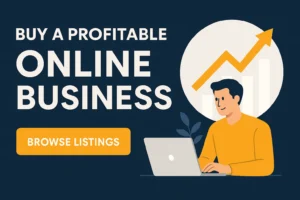Table of Contents
Toggle(GOOGLE RANK WEBSITES)-Finding what you need would be practically difficult without some assistance navigating through the vast amount of information available on the internet. Google’s ranking systems are built to do exactly that search through billions of web pages in a fraction of a second to discover the most relevant, useful results and present them in a way that makes it easy for you to find what you’re searching for.
These ranking systems are made up of a number of algorithms rather than just one. Search algorithms consider a variety of criteria to provide you with the most relevant information. It includes the terms in your query, the relevancy and usability of pages, the expertise of sources, and your location and settings. The importance of each aspect changes depending on the nature of your query.
In the big race to rank at the top of a Google search result page, you must overcome a slew of competitors and algorithmic quirks. Google relies on a number of site characteristics to put your business in place. The struggle to reach the top of the page is challenging and time-consuming.
Algorithm: (IS THE WAY TO GOOGLE RANK WEBSITES)

While Google’s complete ranking algorithm is made up of over 200 known criteria, the one that matters is Google’s page rank, the algorithm developed by Google’s internal team to rank websites in search searches. PageRank is a ranking system that assigns a value to a website based on the quality and number of links that point to it. When a website links to yours on its page, Google interprets this as an endorsement of your website’s authority and quality. It will give you a higher ranking for that particular search. The more well-known the website that links to yours, the better. Instead of getting ranked using what we call black hat SEO practices, this allows for a more organic approach to rating a website.
Google does not make details about its PageRank algorithm publicly available. As a result, it’s up to SEO firms like Victorious to figure out how to put the pieces together. Moz created a quantitative indicator called domain authority to imitate portions of PageRank. This is a Moz score those forecasts how well a website will rank in search engines. The greater the domain authority score, the better, as it represents an honorable gold star from a reputable authority on your website. The number of authoritative sites that link back to your site, and vice versa, determines your score. Backlinks are the term for these kinds of links.
Keyword Research:

Keyword research and analytics are at the heart of SEO. Keywords are essential for achieving high rankings on Google. Ensure that your keyword research is relevant to your content to help consumers connect with it. For keyword research relevancy, there are a few things to take:
- In order to drive traffic to your website, you need to think of themes that potential leads would look for online. Choose keywords and keyword themes from the wider topics you brainstormed and use them in your content.
- Make a list of keywords you’ll use in your content’s language and thematic focus. Make sure to include links with these keywords to give them even more weight in Google’s rankings.
- Find related terms searched for your starting keywords using keyword research tools. Creating keywords based on these concepts helps to attract users who are looking for slightly different keywords and keyword phrases.
- Long-tail keywords, which are more detailed, phrase-based keywords, and head terms, which are shorter, more generic keywords, are both beneficial in increasing your keyword relevancy. Keeping your content and site rich in keyword-specific and keyword-related terms has shown to be helpful in drawing more traffic.
Backlinks:
Your website’s popularity or importance is defined as the number of backlinks it has. Backlinks are vital for the SEO of a website with a large number of high-quality backlinks and consider those websites to be more relevant than others in their search query results pages. Backlinks are still a significant Google ranking component. Google has improved its ability to distinguish between good and bad links over time. The more links in your website, the higher its score will be, but only if the links are from high-quality, authoritative domains.
Optimization of the page:
Basic metadata, meta description, and onsite H1 and H2 tags on each page of an optimized website assist in influencing how your site ranks. In September 2009, Google announced that neither meta descriptions nor meta keywords are used in its web search ranking algorithms. Meta description tags, on the other hand, are vital for getting people to click through from SERPs. Those clicks do have an impact on rankings. On-page SEO, sometimes called technical optimization, refers to the parts of SEO that are visible on your website. While the subtleties of on-page optimization are complex and time-consuming, they provide Google with another option to rank your website. These are some of the on-page optimization factors:
- Content that is current and of high quality. Starting at a minimum of 500 words and ranging in acceptable word count
- The right amount of the target keyword search phrase was included in the headline, title, sub-headline, and body of the article.
- Links to authoritative sites, links back to your own site, and other link-specific code
Site and page loading times:
Nobody likes a website that takes an eternity to load, and search engines would agree if you asked them. That’s why one of the most important aspects of technical SEO is having a website that loads swiftly and smoothly. If your pages take too long to load, your bounce rate will likely soar, negatively impacting your rating. Page speed is a key ranking factor since users anticipate a pain-free surfing experience. When reviewing your site for SEO improvements, keep this in mind. There are several tools on the market that may help you test the speed of your website.
Mobile-first indexing:
When crawling websites, Google uses mobile-first indexing. This indicates that when a page is being evaluated, the search engine prefers to use the mobile version of the site. Even if the desktop version of your site is excellent, if it isn’t optimized for mobile, your search google rating could suffer significantly. Always preview your web pages to ensure that they are usable on a variety of devices, not just desktop computers. Before you hit the publish button, most content management systems include built-in tools that allow you to do this.
How to Track Google ranking?
In the Top Search Queries section of Google’s webmaster tools, you’ll see ranking statistics for your top 100 keywords. However, as a whole, this data was not particularly accurate, and let me explain why. Webmaster tools, for example, would show that you were rated #5 for the term “example.”. When you ran a Google search, your site came up third, whereas your friend who lives 100 miles away and uses a different Internet provider came up fifth. Under the Top Search Queries section of Google Webmaster Tools, Google recently added a new feature that provides you with a lot more data and better insight into your true rankings. Here are the steps to determine your genuine SEO track rankings in Google:
- Go to your webmaster tools account and log in. Click the “More” link under Top Search Queries on your Dashboard.
- After that, you’ll see a list of your top keywords.
- To see the ranking statistics for a certain keyword, click on it. This site ranked in numerous spots for “example,” as shown in the screenshot below.
- You can change the date range and country to your liking to alter the results.
When comparing this data to Google analytics for the number of click-throughs using the same dates, geographical region, and keywords, it’s clear that there’s a gap in the data, but it’s still more accurate than it’s ever been.
What Factors Does Google Consider When Ranking Websites?
While Google’s methods for ranking websites aren’t always apparent or simple. There are many strategies and techniques inside the skeletal framework of an SEO strategy to help you climb that rank ladder. Maintain relevance in your content, continue to establish your linking, incorporate relevant keywords and phrases, and assert your site authority. Soon, you’ll be on your way to the top.
Conclusion:
Higher search engine rankings will result from consistent development in content quality and growth in the quality and number of inbound links over time. Other areas of your website require attention as well, but development will be slow or nonexistent without the first two. SEO is a dynamic sector that is always changing and evolving. Google has pushed for rich content and high-quality links in recent years in order to get your site visible on the search engine. We recommend keeping an eye on Google’s regular updates to ensure you’re always up to date.






